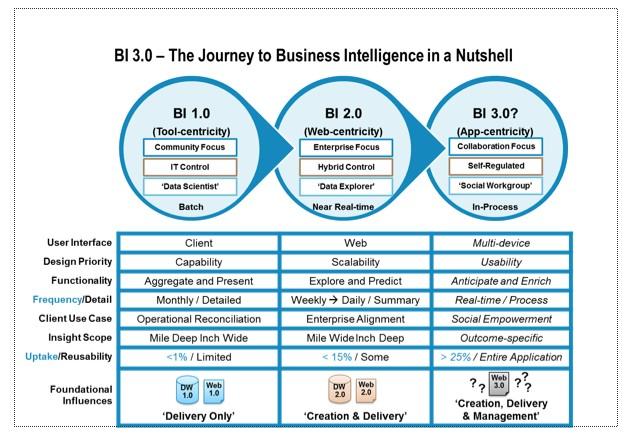The Aftermath of a New Jersey Car Accident
Car accidents are a fact of life in New Jersey, with over 250,000 reported in 2020 alone. If you or someone you know has been involved in a car accident, it’s important to know what to do next. This article will provide guidance on the steps to take after a car accident in New Jersey.
1. Check for Injuries and Call for Help
The first step after a car accident is to check for injuries. If you or anyone else involved in the accident is injured, call 911 immediately. Even if the injuries seem minor, it’s important to get medical attention checked out. Some injuries may not be immediately apparent, and it’s better to be safe than sorry.
Once you’ve checked for injuries, call the police. The police will create a report of the accident, which will be important for insurance purposes. The police can also direct traffic and help to keep the scene safe.
While you’re waiting for the police to arrive, take some time to gather information from the other driver(s) involved in the accident. This includes their name, contact information, and insurance information. You should also take pictures of the accident scene, if possible.
It is never advisable to determine fault for the accident at the accident scene. Only professionals like the police or insurance adjusters have the experience to accurately assess fault.
If you are able, move your vehicle to the side of the road. This will help to keep traffic flowing and prevent further accidents.
Once the police have arrived and you have exchanged information with the other driver(s), you can leave the scene of the accident. However, it’s important to follow up with your insurance company and doctor as soon as possible.
2. Report the Accident to Your Insurance Company
As soon as possible after the accident, you should report it to your insurance company. Your insurance company will need to know the details of the accident, including the date, time, location, and the other driver(s) involved. Your insurance company will also need to know if you or anyone else was injured in the accident.
Your insurance company will then investigate the accident and determine who is at fault. If you are found to be at fault for the accident, your insurance company will pay for the damages to the other driver(s) and their property. If the other driver is found to be at fault, their insurance company will pay for your damages.
3. Get a Copy of the Police Report
The police report is an important document that can help you with your insurance claim. The police report will contain information about the accident, including the date, time, location, and the other driver(s) involved. The police report will also contain information about any injuries or damages that were sustained in the accident.
You can request a copy of the police report from the police department that responded to the accident. There may be a fee for obtaining a copy of the report.
New Jersey Car Accident: A Guide to Handling the Aftermath
In the aftermath of a car accident, it’s crucial to remain calm and composed. However, that can be easier said than done when you’re disoriented, injured, or dealing with significant property damage—situation similar to a recent car accident on the New Jersey Turnpike.
Seek Medical Attention
If you or anyone involved in the accident is injured, call 911 immediately. Even if you don’t feel like you’re hurt, it’s always best to err on the side of caution. Some injuries, like whiplash or internal bleeding, may not show up immediately but can still cause serious health issues down the road.
It’s also important to seek medical attention if you’re feeling disoriented, dizzy, or nauseous. These symptoms can be signs of a concussion or other head injury, which should be evaluated by a professional.
When you arrive at the hospital, be sure to tell the doctor everything you’re experiencing, even if it seems minor. This will help them make an accurate diagnosis and provide appropriate treatment.
Don’t hesitate to ask questions about your injuries and treatment. It’s your body, and you have the right to know what’s going on. The more informed you are, the better you’ll be able to make decisions about your care.
If you’re unable to seek medical attention right away, make sure to see a doctor as soon as possible. Even if your injuries seem minor, it’s important to get checked out to rule out any serious health problems.
NJ Car Accident: What to Do After a Crash
Car accidents are a common occurrence in New Jersey, and they can be a very stressful experience. If you’re involved in a car accident, it’s important to know what to do in order to protect yourself and your rights.
Gather Information
One of the most important things you can do after a car accident is to gather as much information as possible. This includes information about the other driver(s) involved, as well as information about the accident itself. Here are some of the things you should try to gather:
- Names and contact information: Get the names, addresses, and phone numbers of the other driver(s) involved in the accident. Also, get the names and contact information of any passengers in the other vehicle(s).
- Insurance information: Get the insurance information of the other driver(s) involved in the accident. This includes the name of the insurance company, the policy number, and the expiration date.
- License plate numbers: Get the license plate numbers of the other vehicle(s) involved in the accident. This information will help you identify the other driver(s) if they leave the scene of the accident.
- Location of the accident: Note the location of the accident, including the street address, intersection, or highway mile marker. Knowing the location of the accident will help you file a police report and insurance claim.
- Time of the accident: Note the time of the accident. This information will help you file a police report and insurance claim.
- Witnesses: If there were any witnesses to the accident, get their names and contact information. Witnesses can provide valuable information about the accident.
- Photographs: If possible, take pictures of the accident scene. This will help you document the damage to your vehicle and the other vehicle(s) involved in the accident.
- Medical attention: If you or anyone else involved in the accident is injured, be sure to seek medical attention as soon as possible. Getting medical attention will help you document your injuries and get the treatment you need.
New Jersey Car Accident: A Guide to Protecting Yourself After a Collision
In the aftermath of a car accident, it’s easy to feel overwhelmed and unsure of what to do. But taking the right steps can help protect your rights and ensure you get the compensation you deserve. Here’s a comprehensive guide to help you navigate the process:
Document the Scene
It’s crucial to document the accident scene as thoroughly as possible. Take pictures of the vehicles involved, any visible injuries, and the surrounding area. These photos will serve as valuable evidence if you need to file an insurance claim or pursue legal action.
Gather Information
Exchange contact and insurance information with the other driver(s) involved. If there were any witnesses, get their contact information as well. Note down the date, time, and location of the accident, and briefly describe what happened.
Seek Medical Attention
Even if you don’t feel injured, it’s essential to seek medical attention as soon as possible. Some injuries may not be immediately apparent, and getting medical documentation will strengthen your case if you decide to pursue compensation.
Contact Your Insurance Company
Report the accident to your insurance company promptly. They will guide you through the claims process and help you file a claim for damages.
Don’t Give a Recorded Statement
Insurance companies often request recorded statements from accident victims. However, it’s best to avoid giving a statement until you’ve had a chance to speak with an attorney. Your words could be used against you later on.
Hire an Attorney
If you’ve been seriously injured or if the other driver is disputing fault, consider hiring an attorney. An experienced accident attorney can protect your rights, negotiate with the insurance company, and help you get the compensation you deserve.
New Jersey Car Accident: What to Do After a NJ Car Crash?
No one wants to be involved in a car accident. But if you do find yourself in this unfortunate situation, it’s important to know what to do. Here are some steps to follow after a car accident in New Jersey:
Report the Accident
The first thing you should do after a car accident is to report it to the police. This is required by law in New Jersey if there is any property damage or injury. The police will file an accident report, which will serve as an official record of the incident. You can also report the accident to your insurance company.
Exchange Information
After you have reported the accident to the police, you should exchange information with the other driver(s) involved. This includes your name, address, phone number, insurance information, and license plate numbers. You should also take photos of the damage to both vehicles.
Get Medical Attention
If you are injured in a car accident, it is important to seek medical attention as soon as possible. Even if you don’t feel like you are injured, it is still a good idea to get checked out by a doctor. Some injuries may not be apparent immediately, so it is better to be safe than sorry.
Contact Your Insurance Company
You should contact your insurance company as soon as possible after a car accident. They will be able to help you file a claim and get your car repaired or replaced. You should also keep track of all of your expenses related to the accident, such as medical bills and lost wages.
Hire an Attorney
If you are seriously injured in a car accident, you may want to consider hiring an attorney. An attorney can help you get the compensation you deserve for your injuries. They can also help you deal with the insurance company and other parties involved in the accident.
Additional Tips
Here are some additional tips to keep in mind after a car accident:
- Stay calm and don’t panic.
- Move your car to a safe location if possible.
- Don’t admit fault for the accident.
- Cooperate with the police and insurance companies.
- Keep a record of all of your expenses related to the accident.
- Don’t sign anything until you have had a chance to speak with an attorney.
Following these steps can help you protect your rights and get the compensation you deserve after a car accident in New Jersey.
Is It Really Worth Hiring an Attorney After a Car Accident?
Being involved in a car accident can be an incredibly stressful event. Aside from the immediate physical and emotional impact of the accident, victims often need to deal with insurance companies, legal proceedings, and the financial burdens of medical expenses. To make matters more complicated, deciding whether or not to hire an attorney can add an extra layer of stress. While hiring an attorney may seem like an unnecessary expense, there are several compelling reasons why it can be extremely beneficial in the aftermath of a car accident.
1. Handling Insurance Companies
Insurance companies are inherently profit-driven entities, so they are not always on your side after a car accident. An attorney can help you through the claims process, ensuring that you receive fair compensation for your injuries and damages. Attorneys understand the tricks that insurance companies use to minimize settlements. They can also negotiate with insurance companies on your behalf, removing the stress and hassle of dealing with them directly.
2. Protecting Your Legal Rights
Hiring an attorney is crucial for protecting your legal rights after a car accident. The legal process can be confusing and overwhelming, filled with deadlines, paperwork, and potential pitfalls. An experienced attorney can guide you through this process, ensuring that your rights are safeguarded and your best interests are represented.
3. Maximizing Compensation
Insurance companies may try to offer you a quick settlement that is far less than what you are entitled to. An attorney can evaluate your case and determine the full extent of your damages, such as medical expenses, lost wages, and pain and suffering. They can aggressively negotiate on your behalf to ensure that you receive the maximum compensation possible.
4. Pursuing Legal Action
If necessary, an attorney can help you pursue legal action against the at-fault driver or other responsible parties. Filing a lawsuit may be necessary if the insurance company denies your claim or if you have sustained significant injuries that require ongoing care.
5. Providing Emotional Support
The aftermath of a car accident can be an emotionally challenging time. Dealing with the physical and emotional trauma, as well as the financial and legal aspects of the situation, can be overwhelming. An attorney can provide emotional support throughout the process, listening to your concerns, answering your questions, and advocating for your best interests.
6. Negotiating Property Damage Claims
In the aftermath of a New Jersey car accident, it is essential to address not only your injuries but also the property damage to your vehicle. An experienced car accident attorney can assist you in navigating the insurance process, ensuring that you receive fair compensation for the repair or replacement of your vehicle. Here’s a breakdown of the steps involved:
a. Report the Accident to Your Insurance Company: Notify your insurance company about the accident as soon as possible to initiate the claims process. They will assign an adjuster to your case who will investigate the accident and assess the damages to your vehicle.
b. Gather Evidence: Take photos of the accident scene, including damage to both vehicles involved. Obtain a copy of the police report and any witness statements. These documents will serve as valuable evidence when negotiating with the insurance company.
c. Get an Estimate for Repairs: Obtain an estimate for the repair or replacement of your vehicle from a reputable auto body shop. This estimate will detail the extent of the damage and the cost of repairs.
d. Negotiate with the Insurance Company: Your attorney will negotiate with the insurance company on your behalf, using the evidence you have gathered to support your claim. They will work to ensure that you receive a fair settlement that covers the full cost of the repairs or replacement of your vehicle.
e. Resolve the Claim: Once a settlement has been reached, your attorney will help you finalize the claim. This may involve signing a release form and receiving payment from the insurance company.
Hiring an attorney to handle your property damage claim can save you time, hassle, and money. They will ensure that you receive the maximum compensation possible and that your rights are protected throughout the process.
New Jersey Car Accident
A New Jersey car accident can be a harrowing experience, leaving you injured, disoriented, and unsure of what to do next. In the aftermath of such a traumatic event, it’s critical to take the necessary steps to protect your health, safety, and legal rights. This comprehensive guide will provide you with vital information to help you navigate the complexities of a car accident in New Jersey.
Document the Scene
If possible, gather as much information as you can at the scene of the accident. Take photos of the damage, exchange insurance information with the other drivers involved, and obtain contact details from any witnesses. This documentation will serve as crucial evidence in determining fault and pursuing insurance claims.
Seek Medical Attention
Even if you don’t feel severely injured, it’s essential to seek medical attention as soon as possible. Some injuries, such as whiplash, may not manifest immediately. A medical examination will ensure your injuries are properly diagnosed and treated.
Report the Accident
By law, you are required to report any car accident involving property damage or injuries to the police. In New Jersey, accidents must be reported within 10 days.
Contact Your Insurance Company
Notify your insurance company about the accident promptly. They will guide you through the claims process and assist you in obtaining compensation for your losses.
Consider Hiring a Lawyer
Depending on the severity of the accident, you may want to consider seeking legal advice to protect your rights and pursue compensation. A lawyer can represent your interests, negotiate with insurance companies, and ensure you receive fair compensation for your injuries and damages.
Be Patient and Persistent
Insurance claims can take time to process. Be patient and persistent in following up with your insurance company and lawyer. Keep detailed records of your interactions and expenses related to the accident.
Know Your Rights
New Jersey has specific laws governing car accidents, including no-fault insurance and comparative negligence. Understanding your rights will empower you to make informed decisions and protect your interests.
Don’t Panic
Car accidents can be overwhelming, but it’s crucial to remain calm and collected. By following these steps and seeking professional guidance when necessary, you can navigate the process effectively and protect your well-being. Remember, you are not alone, and there are resources available to assist you during this challenging time.
What to Do After a Car Accident in New Jersey
If you’ve been in a car accident in New Jersey, it’s important to know what to do. Here are some steps to follow:
-
Stay Calm and Cooperative
Even though car accidents can be stressful, it’s important to remain calm and cooperate with the authorities and other parties involved. This will help to ensure that the situation is handled smoothly and efficiently. -
Call the Police
If there are any injuries or property damage, you should call the police. They will investigate the accident and create a report. -
Exchange Information
Once the police arrive, you should exchange information with the other drivers involved in the accident. This includes your name, address, phone number, and insurance information. -
Take Photos
If possible, take pictures of the accident scene. This will help to document the damage and provide evidence to your insurance company. -
Get Medical Attention
Even if you don’t feel injured, it’s important to get medical attention after a car accident. Some injuries may not be immediately apparent.
What Not to Do After a Car Accident
In addition to knowing what to do after a car accident, it’s also important to know what not to do. Here are some things to avoid:
-
Don’t Admit Fault
Even if you believe you are at fault for the accident, it’s important to avoid admitting it to the other driver or the police. This could hurt your case later on. -
Don’t Leave the Scene
Leaving the scene of an accident is a crime. Even if you don’t think you are at fault, you should stay at the scene until the police arrive. -
Don’t Get Into an Argument
Getting into an argument with the other driver will only make the situation worse. It’s best to remain calm and cooperative. -
Don’t Sign Anything
Do not sign any documents or agreements at the scene of the accident. You should wait until you have had a chance to speak to your insurance company and an attorney. -
Don’t Post About the Accident on Social Media
Posting about the accident on social media could hurt your case. Insurance companies and attorneys may use this information against you.




Leave a Reply